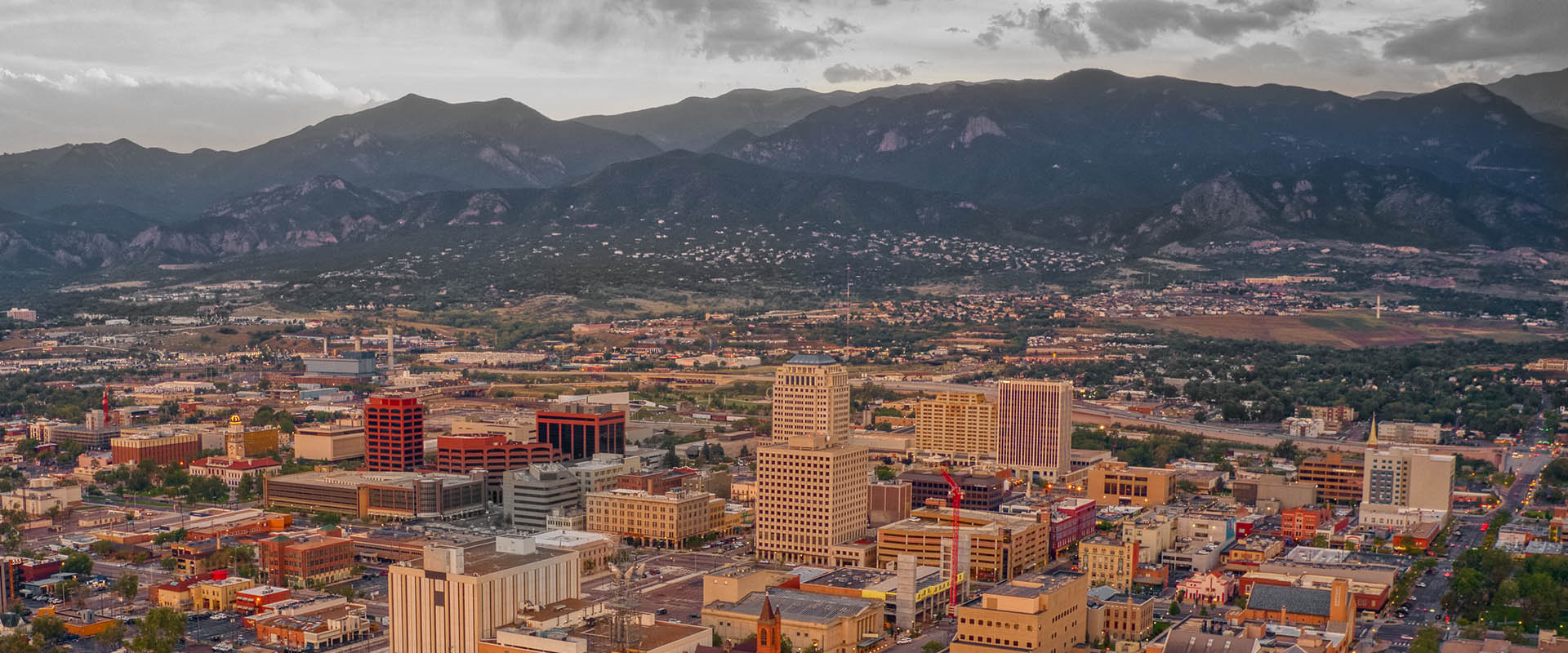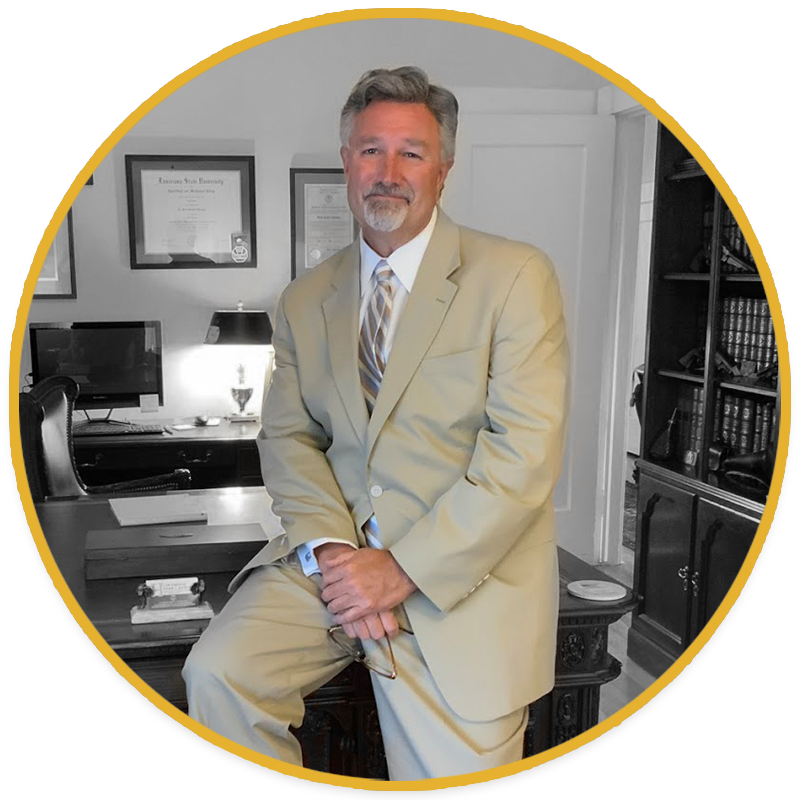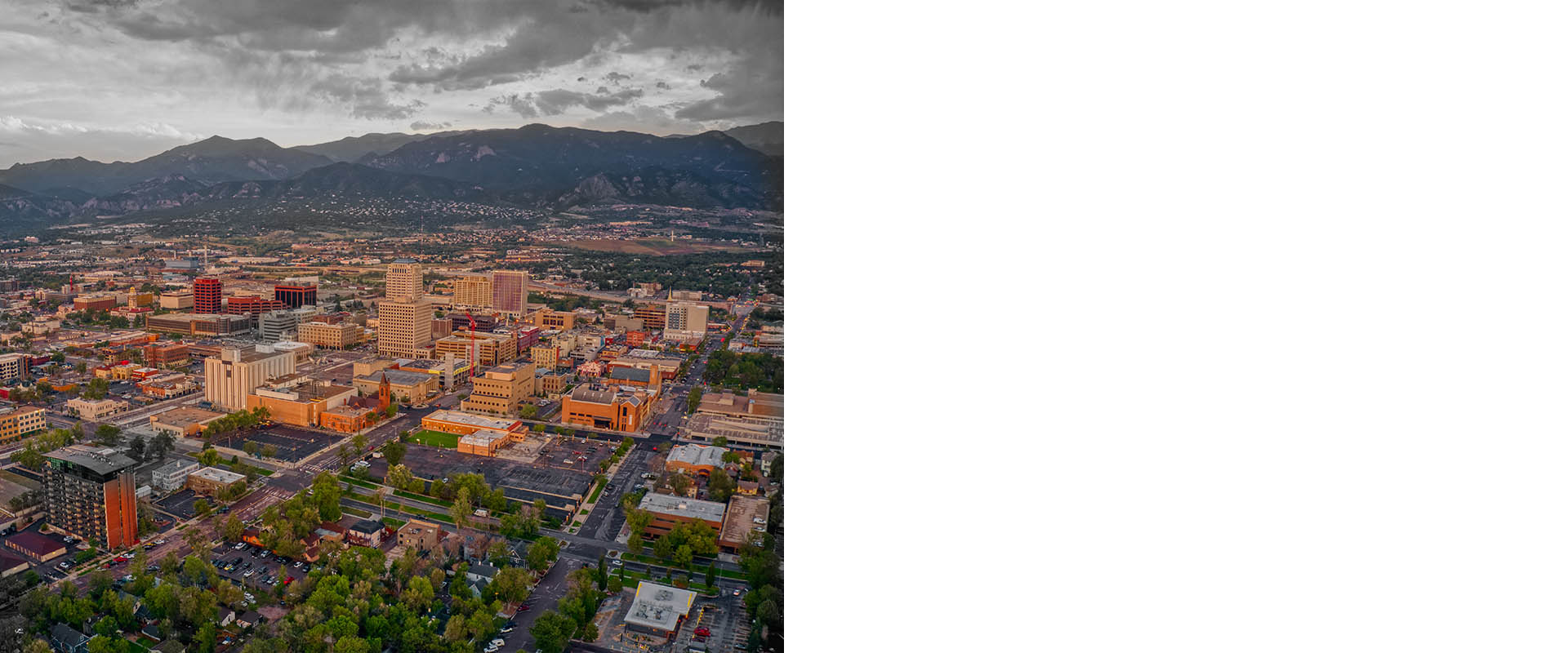Losing a loved one is an incredibly painful experience, especially when the loss comes unexpectedly due to someone else’s actions. In Colorado, wrongful death laws exist to help families get some justice and financial relief in cases where a loved one passes away due to the fault or negligence of another person. This overview explains Colorado’s wrongful death laws in a way that makes it easier to understand what these laws mean, who can make a wrongful death claim, and what types of damages might be available to those affected. For families going through a tragic loss, understanding these laws can help them feel empowered and informed. At, Law Firm of Mark S. Hanchey, we are here to guide you through the legal process and help you navigate the complexities of your case.


With You Every Step of the Journey
When you need legal help, Mark Hanchey and Ben Peterson are here to guide you through it all. One step at a time. Reach out today for legal support. Get The Law Firm of Mark S. Hanchey and Ben Peterson fighting for you
Free Consultation Download PDFWhat is Wrongful Death in Colorado?
In Colorado, wrongful death happens when someone loses their life due to another person’s negligence or wrongful actions. This means that if someone else is responsible for a person’s death—whether because of careless behavior, reckless driving, or even intentional harm—a wrongful death claim could be filed. The wrongful death claim aims to hold the responsible party accountable and to help the deceased person’s family find some financial relief to cope with their sudden loss.
Wrongful death can result from many different situations, including car accidents, medical errors, workplace accidents, or intentional violence. When someone dies because of another person’s actions, Colorado law gives family members certain rights to seek justice and possibly receive compensation. However, not everyone close to the person who passed away has the right to file a wrongful death claim. Colorado law specifically outlines who is permitted to file these claims, which is often limited to close family members.
Who Can File a Wrongful Death Claim in Colorado?
Colorado law determines who can file a wrongful death claim based on their relationship with the deceased. The law has specific rules for when different family members can bring a wrongful death case, depending on how much time has passed since the death.
In the first year following a person’s death, only the spouse of the deceased has the right to file a wrongful death claim. This means that even if the deceased person has children or other close relatives, only the spouse can legally start a wrongful death case within this first year. However, if there is no surviving spouse, the children of the deceased may be able to file a claim.
After the first year has passed, the law opens the possibility for more family members to file a wrongful death claim. In the second year following the death, both the spouse and the children may file a claim. If there is no surviving spouse or children, the parents of the deceased may then have the right to file a wrongful death case. It is important to note that these rules are set by law and that each case might have unique circumstances.
Time Limits for Filing a Wrongful Death Claim
Colorado has specific time limits for filing a wrongful death claim, known as the statute of limitations. According to Colorado law, a wrongful death claim must be filed within two years from the date of the person’s death. This time limit is strict, meaning that if the claim is not filed within this two-year window, the family may lose the right to seek any compensation related to the wrongful death.
In some situations, there may be exceptions to this rule. For example, if the wrongful death resulted from a criminal act, such as homicide, the family might have additional time to file a claim. It is always advisable for families dealing with a wrongful death case to be aware of these deadlines. Understanding these time limits can make a big difference for families who need time to process their loss and decide on legal action.
Damages Available in Colorado Wrongful Death Cases
When a family files a wrongful death claim, they are typically seeking compensation to help cover some of the financial and emotional losses that come with losing a loved one. In Colorado, there are different types of damages that the court may award in a wrongful death case. These damages include economic and non-economic damages.
Economic damages refer to the financial losses caused by the death. For instance, if the deceased person was providing financial support to their family, the family can seek damages for the income they would have received if the person had lived. Economic damages might also include funeral expenses, medical bills related to the final illness or injury, and any other direct financial costs tied to the death.
Non-economic damages cover the emotional impact of losing a loved one. These damages may include compensation for the pain and suffering experienced by the surviving family members. In some cases, non-economic damages also account for the loss of companionship, affection, and support that the deceased person provided. Colorado law places certain limits, or caps, on the amount of non-economic damages that can be awarded in a wrongful death case, though these caps can change over time.
Proving Negligence in a Wrongful Death Case
To successfully make a wrongful death claim in Colorado, the family or their attorney must be able to show that the person or party responsible was negligent or otherwise at fault. Proving negligence means showing that the responsible person or party failed to act in a reasonable manner, leading to the death of the loved one. This proof usually requires evidence showing how the person acted carelessly or recklessly in a way that directly led to the tragic outcome.
For example, if the wrongful death case involves a car accident, the family might need to prove that the driver was driving under the influence, speeding, or otherwise breaking traffic laws. If medical malpractice led to the death, the family might need to prove that the doctor or healthcare provider did not provide the expected standard of care. Proving negligence in wrongful death cases often requires gathering strong evidence, such as police reports, medical records, witness statements, or testimonies to explain what happened and why the responsible party is at fault.
How Wrongful Death Settlements Work in Colorado
Many wrongful death cases in Colorado are resolved through settlements, which means the responsible party agrees to pay a certain amount to the deceased person’s family without going to trial. Settlements can offer families a way to receive financial compensation more quickly and avoid the stress of a lengthy court battle. In these cases, the family’s attorney typically negotiates with the other party or their insurance company to reach an agreement.
Settlement amounts in wrongful death cases can vary widely depending on factors such as the deceased person’s age, earning capacity, and the extent of the family’s emotional and financial losses. Families considering a wrongful death settlement should keep in mind that once they agree to a settlement, they usually give up their right to pursue additional claims related to the death in the future.
How an Attorney Can Help With a Wrongful Death Claim
Wrongful death claims in Colorado can be challenging to navigate, especially for grieving families. An attorney experienced in wrongful death cases can be a valuable resource for families dealing with this kind of loss. By handling the legal complexities, gathering evidence, and advocating for the family’s rights, an attorney can help ensure that the family’s voice is heard and that justice is sought on their behalf.
An attorney can also help with calculating the damages the family may be entitled to, including both economic and non-economic losses. By assessing the full impact of the loved one’s death, the attorney can help families pursue the maximum compensation available under Colorado law. In many cases, having an attorney represent the family can improve their chances of securing a favorable outcome, whether through settlement or trial.
Common Challenges in Colorado Wrongful Death Cases
There are several challenges that families may encounter when filing a wrongful death claim. One of the main challenges is proving fault or negligence, as this often requires substantial evidence. Without clear proof that the responsible party acted negligently, it can be difficult to win the case. Another challenge involves dealing with insurance companies. Insurance companies may try to offer lower settlement amounts, so families must be prepared for negotiations that can take time.
Additionally, families might struggle with the emotional toll of pursuing a wrongful death case, as they are still grieving their loss. Working with a compassionate attorney can help ease some of this burden, as the attorney can handle the difficult legal aspects and provide guidance throughout the process. In some cases, families may also face challenges with understanding Colorado’s legal limits on certain types of damages. Having a knowledgeable legal advocate can make navigating these obstacles more manageable for the family.
If you have lost a loved one in Colorado due to someone else’s actions, the wrongful death laws allow you to seek justice and hold the responsible party accountable. Understanding these laws can be challenging, but you do not have to face it alone. The Law Firm of Mark S. Hanchey is here to provide compassionate and skilled legal support for families dealing with the loss of a loved one. Our team is ready to listen to your story, explain your options, and help you pursue the compensation you deserve during this difficult time. Reach out to us today to begin the process of seeking justice for your loved one.


